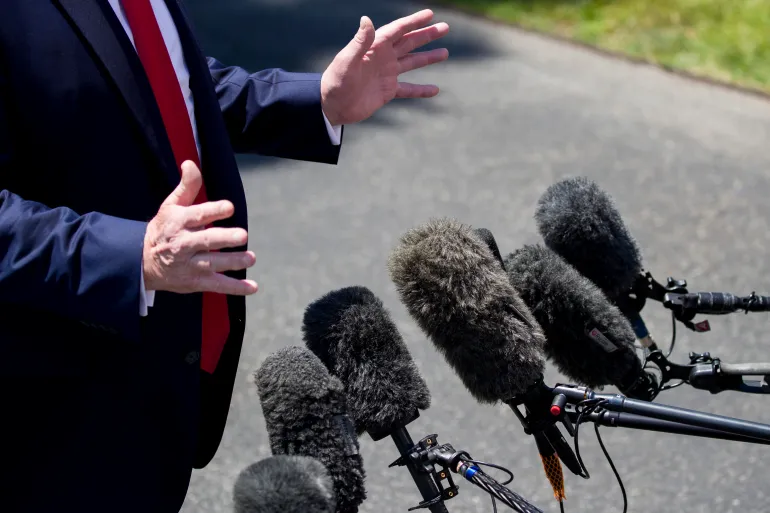American democracy faces serious threats, and the US media manipulation crisis is part of the problem. Political leaders, including former President Donald Trump and his allies, are acting to control information and limit the public’s access to full truth. Beyond influencing elections, they are shaping the news environment to serve their interests.
A recent example is the handling of the Jeffrey Epstein files. The files detail investigations into Epstein’s alleged child sex trafficking, but public access has been heavily restricted. In early February, Attorney General Pam Bondi claimed on Fox News that Epstein’s client list was on her desk. Yet, weeks later, she released only a partially redacted version, later closing the files entirely. Officials said no further details would be released.
Many experts believe these actions aimed to protect Trump, who was reportedly briefed on mentions of him in the files. This impression strengthened when House Speaker Mike Johnson adjourned Congress to block a vote on the files and framed Trump as an FBI “informant.” These maneuvers suggest the situation is less about transparency and more like a significant government cover-up.
This strategy fits a broader pattern of consolidating power. Trump’s administration expanded executive authority, militarized immigration enforcement, and used emergency powers to sidestep constitutional limits. These moves have narrowed political debate and limited acceptable speech.
The media, often called the “fourth pillar of democracy,” has occasionally challenged overreach. However, many outlets have succumbed to pressure. In December 2024, ABC News settled a defamation case with Trump for $15 million. Seven months later, CBS’s parent company, Paramount, paid Trump $16 million in another settlement. Journalists critical of Trump were quietly removed from newsrooms that shifted toward conservative coverage.
Paramount’s approach has been particularly clear. While merging with Skydance Media, it promised to remove diversity and equity policies. The new company is elevating conservative voices and promoting an agenda described as “addressing bias.” These changes indicate corporate media is increasingly accommodating political pressures rather than defending journalistic independence.
US media manipulation crisis also affects coverage of international conflicts. The mainstream American press has largely failed to challenge Israel’s restrictions on journalists in Gaza, where over 270 media workers have died. Reports often favor Israeli perspectives and underrepresent Palestinian experiences. Experts note reporting consistently dehumanizes Palestinians and amplifies official narratives.
Observers argue this is consistent with longstanding patterns. Scholars have long noted that the US political system supports concentrated power, and media is embedded within state and corporate networks. Media scholar J. Herbert Altschull said the powerful have never welcomed a free press. Robert Entman noted government sources and journalists form close ties that limit true independence.
The Trump years intensified these trends. Authorities have become more aggressive in controlling information, punishing dissent, and influencing corporate media. While democracy in the US has always faced structural weaknesses, the speed and directness of these efforts are unprecedented.
Without checks on political power and stronger journalistic independence, Americans risk seeing the erosion of democracy accelerate. Free elections, independent media, and meaningful oversight remain fragile. The US media manipulation crisis is not a temporary problem—it is a mechanism through which democratic norms are being undermined.
If the current trends continue, the nation may not simply experience democracy in crisis, but rather a symbolic version of it, where public institutions exist more as form than substance.


